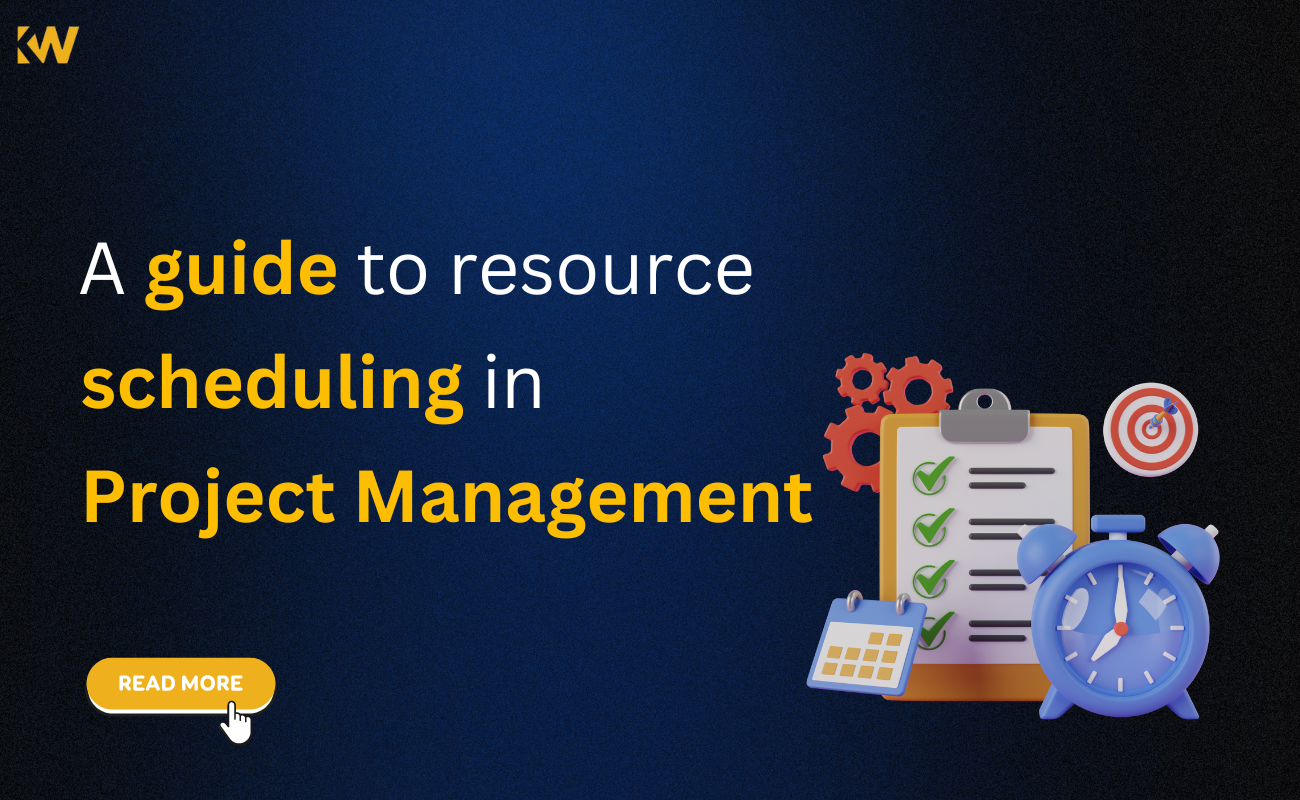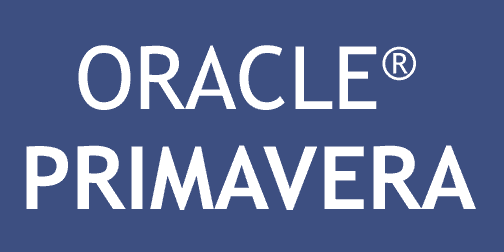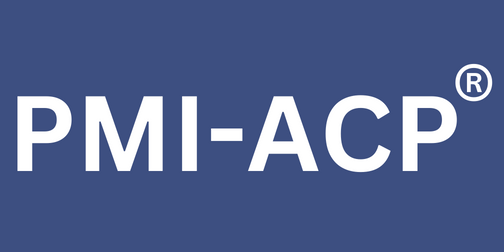
A Guide to Resource Scheduling in project management
Posted On August 20, 2024 - 16:42 PM
Resource scheduling is an essential aspect of successful project management. It involves coordinating and allocating the resources, including equipment, personnel and supplies to ensure they are always available to accomplish project objectives efficiently. Through efficient scheduling of resources, you will be able to optimize the timeline of your project, cut expenses, and boost overall project performance.
Understanding Resource Scheduling
Resource scheduling involves:
-
Recognizing resources: Find the exact materials required to complete your project, such as equipment, personnel, and materials.
-
Estimating the requirements for resources: Assess the quantity and period of each resource required for various projects.
-
Create a resource plan: Develop a plan that specifies when and where resources are allocated to certain tasks.
-
Monitoring and changing: Track resource utilization and make any necessary changes to your schedule when required.
Key Considerations for Effective Resource Scheduling
-
Resources Availability: Ensure that resources are available whenever needed. Be aware of factors such as sick leave, vacation time and equipment maintenance.
-
Resource Capacity: Do not overload resources by attempting to handle multiple tasks. Check each resource's capacity to take on the load.
-
Resources Dependencies: Find dependencies among resources and tasks. For instance, a particular piece of equipment could be required for a variety of tasks.
-
Contingency Plan: Develop a contingency plan to handle the possibility of delays or resource shortages.
-
Communication: Be in constant communication with every party involved in the project, keeping everyone updated on resource allocation and any modifications to the plan.
Tools and Techniques for Resource Scheduling
-
Resource calendars: Show the availability of resources and their allocation in time.
-
Resource Allocation Matrix: Retrace resource allocations for specific projects.
-
Criteria Path Method (CPM): Identify important activities that directly impact the overall duration of the project, and assign resources accordingly.
-
Gantt Charts: Make a graphic representation of the project's schedule that includes the allocation of resources.
-
Program Management Software: Use specialized tools in the software to improve resource tracking and scheduling.
Benefits of Resource Scheduling in Project Management
The ability to effectively resource scheduling is the key element in successful project management. By carefully arranging and managing resources, you will reap many benefits, such as:
Improved Project Performance
-
Timelines for projects are shorter: Optimal resource allocation will help speed up the process of completing projects.
-
Improved project quality: Adequate resources ensure that projects are completed with a focus on detail.
-
Risks for projects that are minimal: Effective resource scheduling assists in identifying and reducing the risk of potential hazards.
Cost Efficiency
-
Lower costs: Efficient resource allocation reduces costs by preventing over- or under-utilization.
-
Optimized resource use: By coordinating resources with tasks in a way, that will increase their efficiency.
Improved Stakeholder Satisfaction
-
Expectations met: Effective resource scheduling assists in ensuring that the project's expectations of project stakeholders are fulfilled.
-
Transparent communication: Resource scheduling is a way to facilitate open communication and transparency between all stakeholders.
Enhanced Decision-Making
-
Data-driven decisions: Resource scheduling provides valuable data for informed decision-making.
-
Risk mitigation: In identifying the potential constraints to resources You can devise strategies to reduce the risk.
Increased Organizational Efficiency
-
Improved allocation of resources: The efficient scheduling of resources is a way for organizations to better allocate resources across projects.
-
Better utilization of resources: By maximizing resource utilization, businesses can boost overall efficiency.
Enhanced Project Management
-
Enhances visibility of projects: Resource scheduling provides clear information about project management and allocation of resources.
-
Project control enhanced: By monitoring resource usage, you will be able to better manage the project's execution.
Best Practices for Resource Scheduling
-
Begin in the early hours: Begin planning resource allocation as early as possible to avoid last-minute changes.
-
Flexible: Be prepared to alter the schedule if necessary to adjust to changes in resource availability or the project's scope.
-
Participate with participants: Collaborate with project stakeholders to ensure that their requirements and expectations are fulfilled.
-
Monitor and modify: Continuously monitor resource usage and make any appropriate adjustments in the schedule to maximize the project's performance.
-
Experiences to learn from: Analyze past projects to find areas of improvement in the scheduling of resources.
How Effective Resource Scheduling Can Boost Your Career
Effective resource scheduling isn't just essential for the success of your project but it can significantly improve your chances of advancing in your career. Here's how:
Demonstrates Essential Skills
-
Solution-oriented: Scheduling resources requires you to analyse complex issues and discover effective solutions.
-
Organization and planning: Creating and managing resource schedules proves your ability to organize and plan efficiently.
-
Communication: Collaborating with stakeholders and coordinating resource allocation demands an ability to communicate.
-
Flexibility: Resource scheduling often requires adjustments to accommodate unpredictable circumstances, which shows your ability to adapt.
Increases Project Success
-
Timelines that are improved: Well-scheduled resources can assist in meeting deadlines for projects.
-
Lower costs: Efficient resource allocation can reduce costs by preventing overutilization or underutilization.
-
Higher quality: Adequate resources ensure that the tasks are carried out with the required care to the smallest of details.
Positions You for Leadership Roles
-
Thinking strategically: The ability to demonstrate proficiency with resource planning makes you an effective strategic thinker.
-
Team management: effective resource distribution typically requires managing groups and delegating work.
-
Project management skills: Your ability to manage resource scheduling could be an asset in project managerial roles.
Stand Out in the Job Market
-
Competitive benefit: In today's competitive job market, having skills in resource scheduling can set you apart from other applicants.
-
Greater earning potential: Your ability to help in the success of a project can result in higher wages and promotions.
-
Career growth: Effective resource planning can lead to new career opportunities and growth.
How Effective Resource Scheduling Can Benefit You in 2024
In 2024 the importance of a well-planned resource schedule is greater than ever before. Here's how it will benefit you:
Economic Uncertainty and Resource Scarcity
-
Optimizing costs: When there is economic uncertainty, efficient allocation of resources is vital to cut expenses and increase returns.
-
Supply disruptions in the chain: The scheduling of resources could minimize the impact of supply chain disruptions by making sure resources are used efficiently.
Increased Project Complexity
-
Complex projects: When projects get more complicated, efficient resource management is necessary to make sure that the resources get assigned to the appropriate tasks at the appropriate time.
-
Interconnectedness: In Today's world of interconnectedness, the project usually requires many stakeholder groups and their dependencies. Resource scheduling assists in coordinating these components.
Technological Advancements
-
Digital Transformation: Tools and programs for resource scheduling can help streamline processes and increase efficiency.
-
Remote working: As remote work is becoming more commonplace, efficient resource planning is crucial to ensure teams have the tools to be productive.
Environmental Sustainability
-
Sustainability practices: The scheduling of resources could assist organizations in adopting more sustainable practices while reducing consumption and maximising resource use.
Talent Shortages
-
Skill gaps: In a highly competitive job market, efficient resource planning can help companies maximize their talent pool by ensuring that resources are optimally utilized.
Conclusion
Effective resource scheduling is vital to ensure the success of project management. By careful planning and distributing resources, you will be able to optimize timeframes for projects, reduce expenses, and boost the overall efficiency of your project. If you follow the guidelines in this document it is possible to create an effective resource schedule plan that is in line with the goals of your project.
FAQ
Q1. What is resource scheduling in project management?
Ans. Resource scheduling is the process of identifying when project resources are needed and allocating them based on factors such as capacity planning or resource availability. The main purpose of resource scheduling is to guarantee that there's no over or under-allocation of resources at any point of the project.
Q2. What are the guidelines for project scheduling?
Ans. General Guidelines for Scheduling.
-
The Project Name is identified and recorded.
-
The Project Start Date is identified and recorded.
-
The Work Breakdown Structure (WBS) ID is identified.
-
The Project Status Date is identified, recorded, and maintained.
-
The Project Calendar has been identified and recorded.
Q3. What are the 4 steps to creating a project schedule?
Ans. Whichever path you choose, these are the steps to create a project schedule:
-
Create the schedule plan for your project.
-
Define who has authority over the schedule.
-
Identify start and end dates for project activities and tasks.
-
Figure out task dependencies.
Q4. What is the objective of resource scheduling?
Ans. These activities can be related to project work or non-project work, i.e., BAU, Support, admin, operation, etc. The main objective of resource scheduling is to ensure that the right resources are available at the right time to meet project deadlines and achieve business objectives.
Q5. What is the purpose of project scheduling?
Ans. The main purpose of project scheduling is to represent the plan to deliver the project scope over time. A project schedule, in its simplest form, could be a chart of work elements with associated schedule dates of when work elements and milestones (usually the completion of a deliverable) are planned to occur.


















